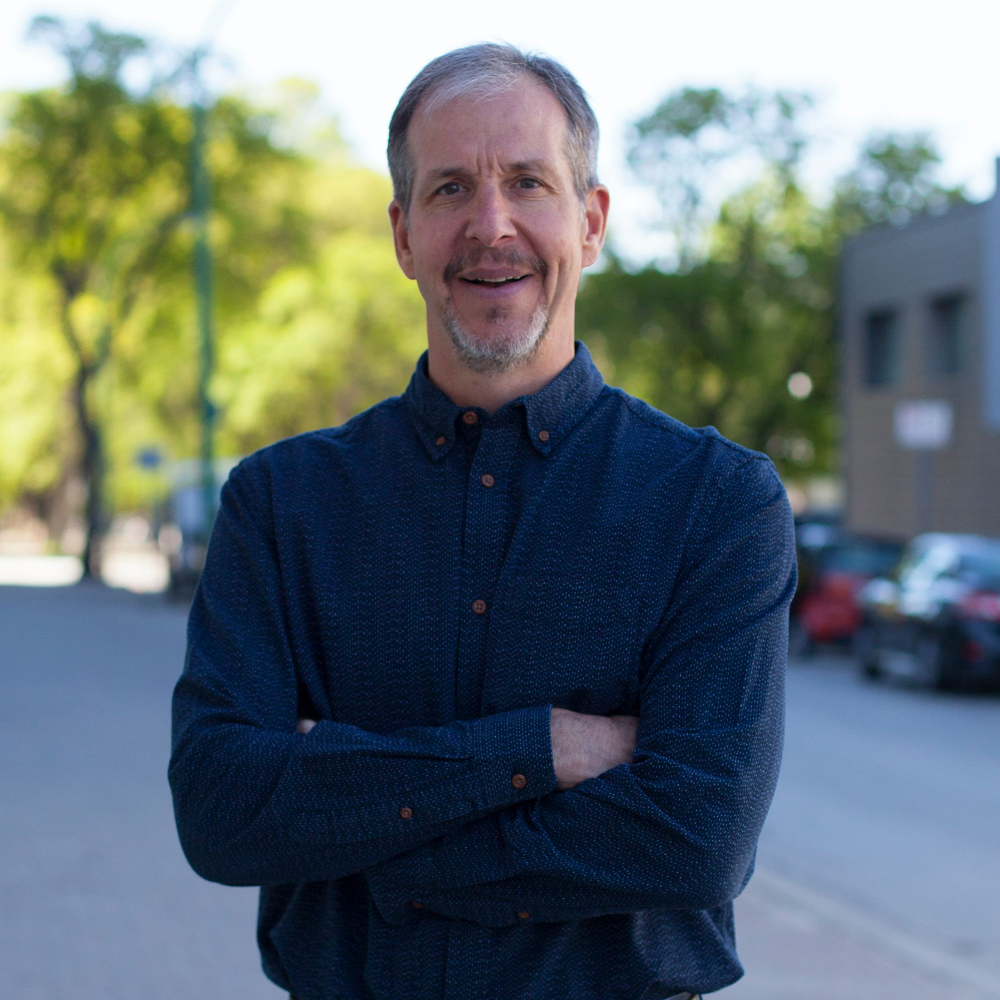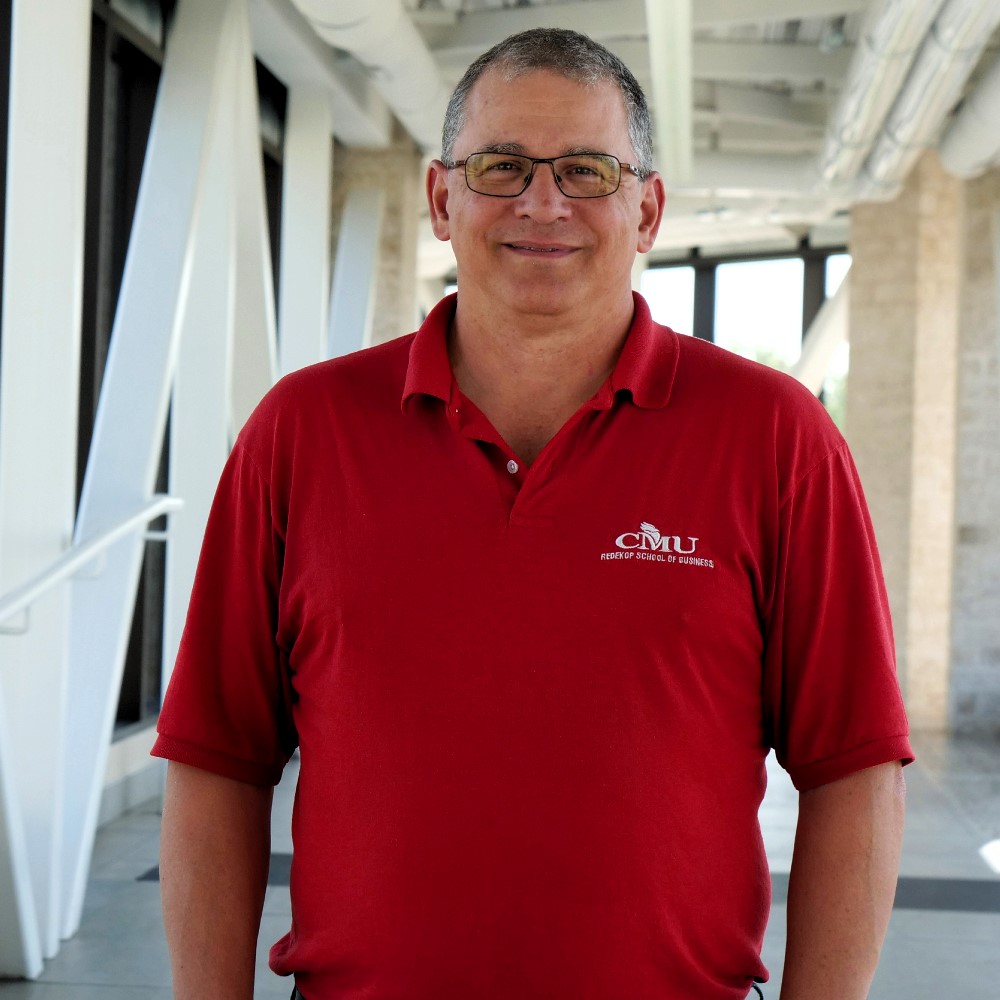News and Releases

Faculty Profiles
Cross-continental research: CMU business faculty dive into UK economics
Tuesday, December 12, 2023 @ 10:10 AM | Faculty Profiles

Two Canadian Mennonite University (CMU) faculty hopped the pond this past summer, not just to see the English countryside, visit Buckingham Palace, or catch a football game. They were there strictly for work purposes and to pursue extended research in their fields. Well, maybe also to see a little bit of countryside.
Jerry Buckland, Professor of International Development Studies and Craig Martin, Assistant Professor of Business may not have been in the UK for the same project, but their economic back (IDS) grounds mean both will bring back a wealth of valuable reports and material that will help sustain CMU's business and IDS studies.
Professor of International Development Studies and Economics, Jerry Buckland
Having recently returned from his stint abroad, Buckland was eager to share the particulars of his research. In simple terms, the research focused on interviewing people who met a predetermined low-income threshold, holding conversations and studying how they managed their finances.

Buckland's background is in consumer finance and financial inclusion, but his perspective is shaped by community-based development and is influenced by his time working as a socio-economist in Bangladesh. This gives Buckland a particular understanding of how financially vulnerable individuals face their situations and recover.
"One of the goals of the research is to understand how important numeracy—how well you understand numbers and basic manipulation of numbers—is in enabling people to manage their finances," says Buckland.
Buckland argues that an orthodox view of economics places more importance on numeracy than may be consequential. "It's about how accessible financial services are, and it's about if you have the education and training that enables you to get a job that pays a decent wage. These things are more important than if you numerate or not."
This interpretation, Buckland argues, is common among sociologists or other academics in the humanities but remains an obscure study in certain economic circles and especially in government policies.
Interviewing six people twice throughout September and October, this small-scale qualitative project connects to a long-term financial diaries project Buckland has been conducting in Winnipeg as a method to assess financial literacy and numeracy.
"There is a huge stigma I saw in the UK, where people think that if you're poor, you're probably to blame for it," says Buckland. "We're blaming the victim."
Buckland's qualitative study matches decades of research that supports systemic issues as the root cause of poverty, with racialized communities facing the highest levels of poverty.
Buckland says if the government creates policies that work to end poverty, it must be implemented on a larger scale, including everyone. Highlight the government of Canada's implementation of CERB during the pandemic, Buckland says, "One of the criteria for getting CERB was that you had to earn $5,000 a year before, but there are many people who were unemployed the year before they didn't earn $5,000 and yet their income if they're relying on social assistance is well below the poverty line. We just didn't provide support for people."
Buckland says he had a similar experience from a research participant in Birmingham. A young mother, explains Buckland, held a part-time job with additional government support. After budget cuts and policy changes, she no longer had access to that safety net and a domino effect began.
"She couldn't pay bills, debt started to accumulate, and we saw it was causing her a lot of trauma," says Buckland. "So, a policy change may save the government money, but it's then harming this person and many other people in that position."
Despite this, it's not impossible to see a future where financially vulnerable individuals can access support networks. Since the pandemic, there has been a growing interest in Universal Basic Income, and the recent re-discovery of a buried study that offered guaranteed income conducted in Manitoba in the 1970s saw positive outcomes for whole communities.
This experiment showed lower rates of domestic violence, work-related injuries, and mental health issues. It allowed new parents to stay home longer with their children and saw teenage boys complete their high-school education rather than dropping out to support their families. Other demographics involved in the study continued to work despite fears of mass resignations.
"In the future, we will need to reconceptualize what numeracy is," says Buckland. "Communication, problem-solving skills, organization, those are the skills you need, but what you really need is an ecosystem that supports you."
Assistant Professor of Business, Craig Martin
Craig Martin caught up shortly before he left. During our conversation, he held great excitement and optimism at the prospect of taking his first trip to Cambridge to participate in the Kirby Laing Centre (KLC) Research Hub, which brings together economists worldwide who are actively engaged in studying the intersection of theology and economics.

"It's a chance to bring together economists who are Christian and are thinking in some of these very complex ways around how we integrate what we see in the economic system with what is happening in the political and theological," says Martin. "I'm going to be looking at philosophy under the pillars of theology, economics, and politics and how they combine together in people's lives."
The KLC Economic Research Hub meets about six times a year, five of which are via Zoom, and the sixth meeting is in person, coinciding with the annual meeting of the Association for Christian Economics UK.
Martin became involved in the research hub through previous connections with other North American economists. "This hub [In the United States] is an affiliation with the Association of Christian Economists in the UK," says Martin. "But this is the first year that I've had time to really take [the KLC Economic Research hub] on."
Martin's research aims to study how Thomas Aquinas's view of natural law—which focuses on God's role as the giver of human nature and the principle by which one should exercise that gift—influences political and economic systems. He also hopes to touch on the limits of human knowledge and, thus, the limits of economic systems.
"Yeah, it's big," laughs Martin. "But really, I'm looking at how to bring all this together and how we can create a political, economic system that allows people to achieve their own goals in life."
Martin says that when we study the intersection of theology and economics, "we can begin to see the flourishing of human potential." He says that he's beginning to think deeper about how our image of God changes within the context of these two streams of study but says there are parts of God we can never truly understand. He says, however, we do know that God granted free will, and our ability to form a resilient economic system begins with the knowledge of that proclamation.
KEYWORDS: Redekop School of Business, RSB, business, economics, Jerry Buckland, Craig Martin, faculty, research

 Print This Article
Print This Article